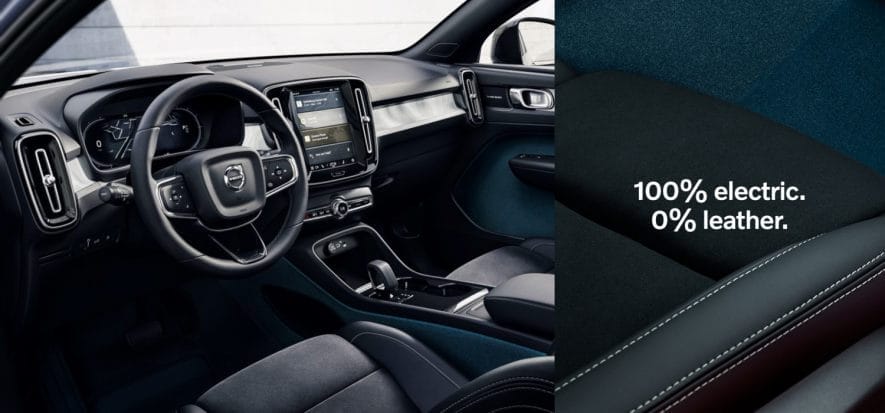The slogan to promote the “leather-free” campaign on social media simply sounds bad: “100% electric, 0% leather”. As if the new generation of engines should come with the ban of a specific material: it’s not the case. But Volvo’s arguments in support of this choice are even more convoluted. The Swedish automaker believes that the livestock industry isn’t sustainable, and so decides to quit leather. And in doing so it doesn’t take into account that the material is a byproduct of the meat industry. Volvo has decided to sabotage the tanning industry, which gives value to a product through an upcycling process. Yet, this choice has no impact on the livestock industry because (as shown by the latest data on meat consumption) the amount of meat consumed keeps on growing even when tanneries don’t recover the waste the former makes.
Volvo’s electric plan
Volvo recently announced his plan to convert its engines to electric: by 2030, 100% of its vehicles will run on electricity. The plan incudes other objectives: “By 2025, 25% of materials used to build Volvo’s new cars will be recycled and bio-based – writes the manufacturer -, to become a completely circular company in 2040. Moreover, all direct suppliers, including those for materials, will get to use 100% of energy from renewable sources by the same year”. One of the pillars is to remove all animal-based interiors. Why? Because of the “awareness of the negative environmental impact that comes from raising livestock – says the official statement -. It’s estimated that 14% of all global greenhouse gas emissions is due to human activity”.
The big question…
There are many things to be said. And many have already been told to them. Segment press sources such as leatherbiz and social media users. Volvo answers the same way most of the times: “The leather currently used is sourced responsibly as a byproduct of the meat industry”. So, what’s the problem? Why ban a circular material that is recovered, when the goal is being circular? “We want to contribute to animal welfare by lowering the demand for leather – says Volvo -. There are global concerns tied to raising bovines and thus the leather segment”.
That’s how the Swedish automaker’s reasoning shows its flaws. As shown by the full warehouses in France during the lockdown, or the rotting raw hides that were thrown in landfills in Argentina during the pandemic (or when tanneries struggle), the meat industry doesn’t care. If all manufacturers behaved the same way as Volvo, the only result would be that of additional waste going to landfills or dispose, along with one less sustainable product on the market.
Read also:










